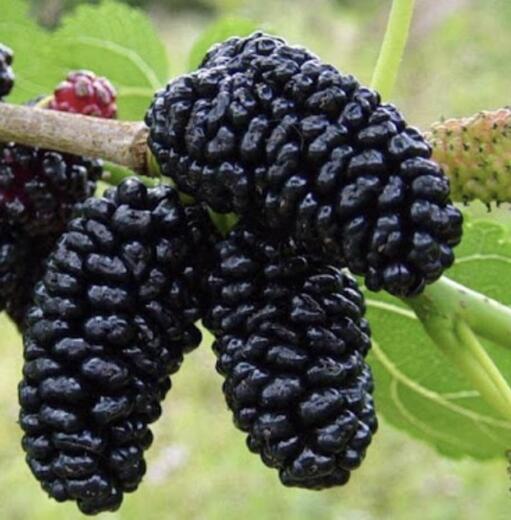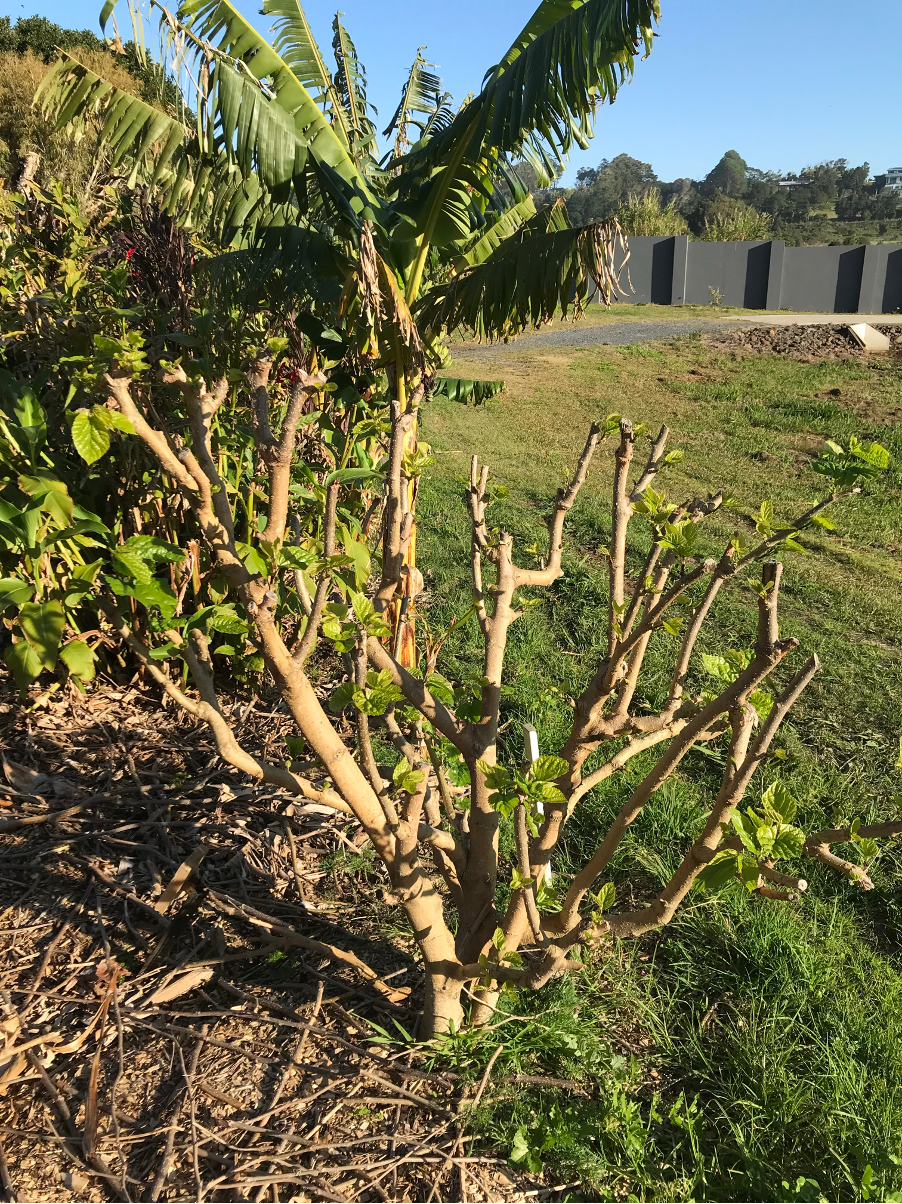(Photo courtesy Fruitopia Nursery - fruitopianursery.com.au)
Morus nigra
Rich sweet flavoured, and many folks childhood favourite.
Pick when the fruit is ripe - dark purple, almost black.
Often made into wine; used also in tea, smoothies, jam, jellies, pies and frozen desserts, or dried and eaten as a snack.
If you are new to this fruit be sure not to wear your Sunday best, as stains will not impress whoever does the washing in your house!
Mulberries are considered one of natures superfoods with many health benefits, but be sure to consume in moderation as too many can give you a tummy ache. As with any foods high in natural sugars, diabetics should take care as foods such as this can have negative health impacts.
Deciduous tree that gets new leaves in early spring.
The leaves are the only known food source for silkworms.
Native to south west Asia & the Iberian Peninsular.
Rich sweet flavoured, and many folks childhood favourite.
Pick when the fruit is ripe - dark purple, almost black.
Often made into wine; used also in tea, smoothies, jam, jellies, pies and frozen desserts, or dried and eaten as a snack.
If you are new to this fruit be sure not to wear your Sunday best, as stains will not impress whoever does the washing in your house!
Mulberries are considered one of natures superfoods with many health benefits, but be sure to consume in moderation as too many can give you a tummy ache. As with any foods high in natural sugars, diabetics should take care as foods such as this can have negative health impacts.
Deciduous tree that gets new leaves in early spring.
The leaves are the only known food source for silkworms.
Native to south west Asia & the Iberian Peninsular.
August 2022


